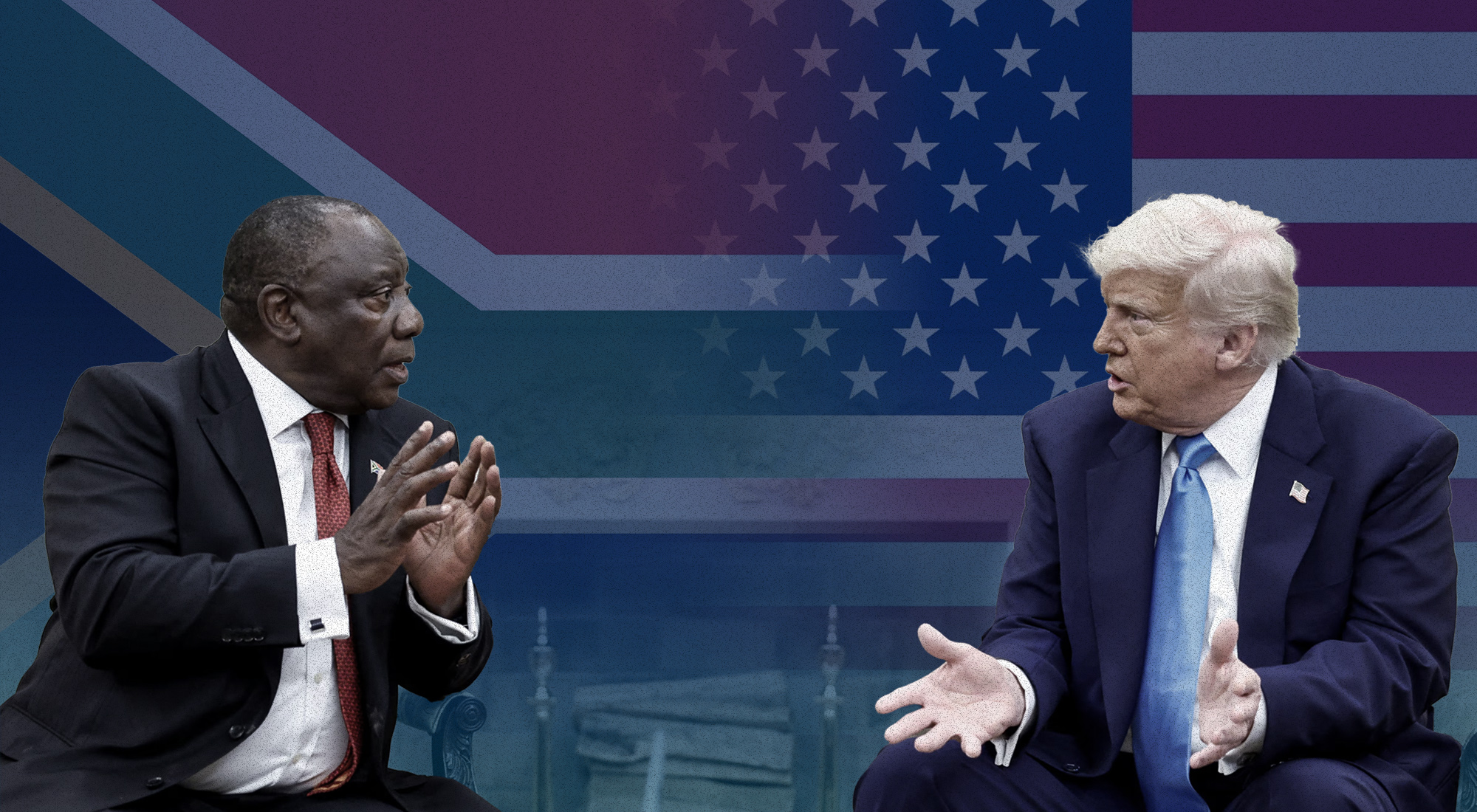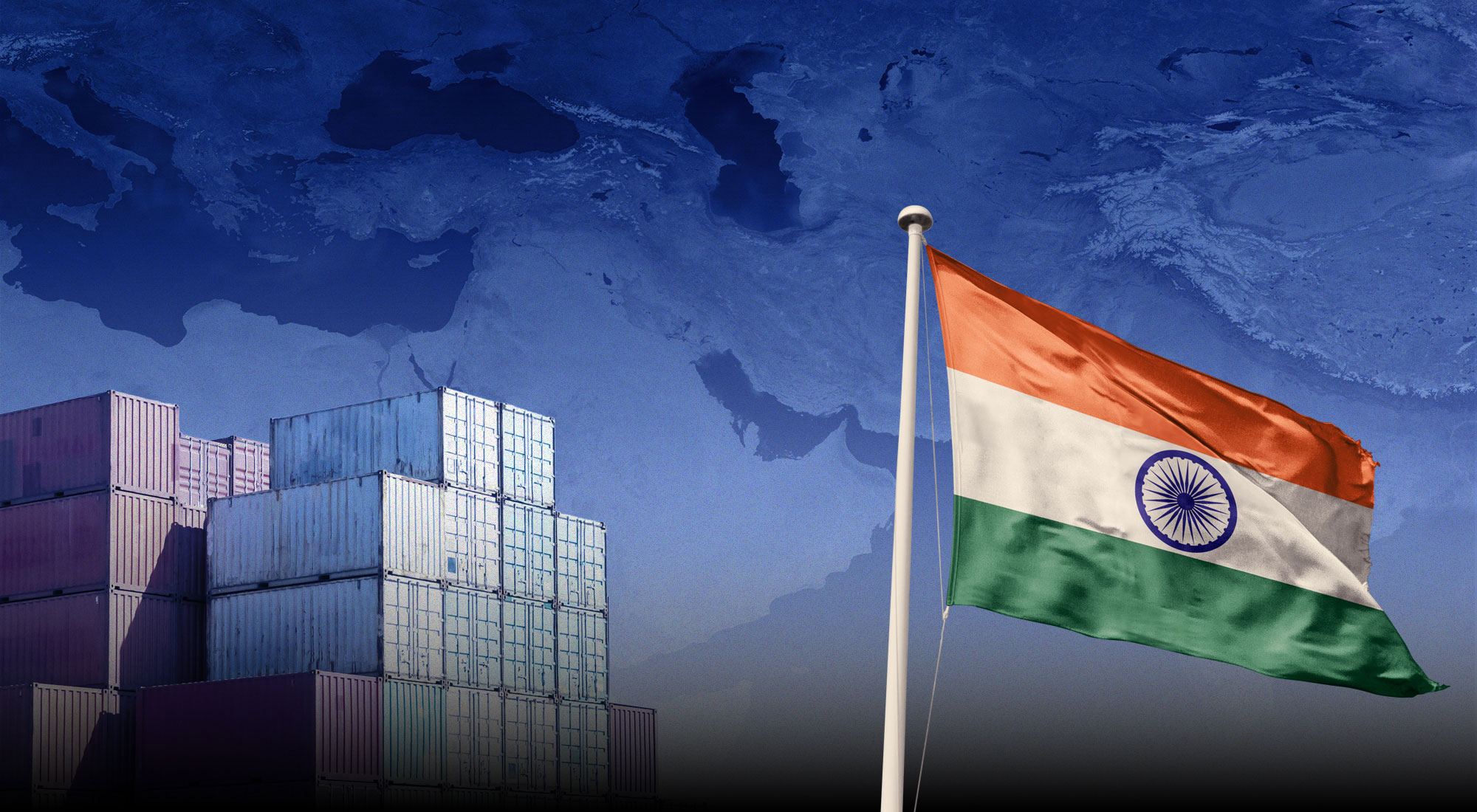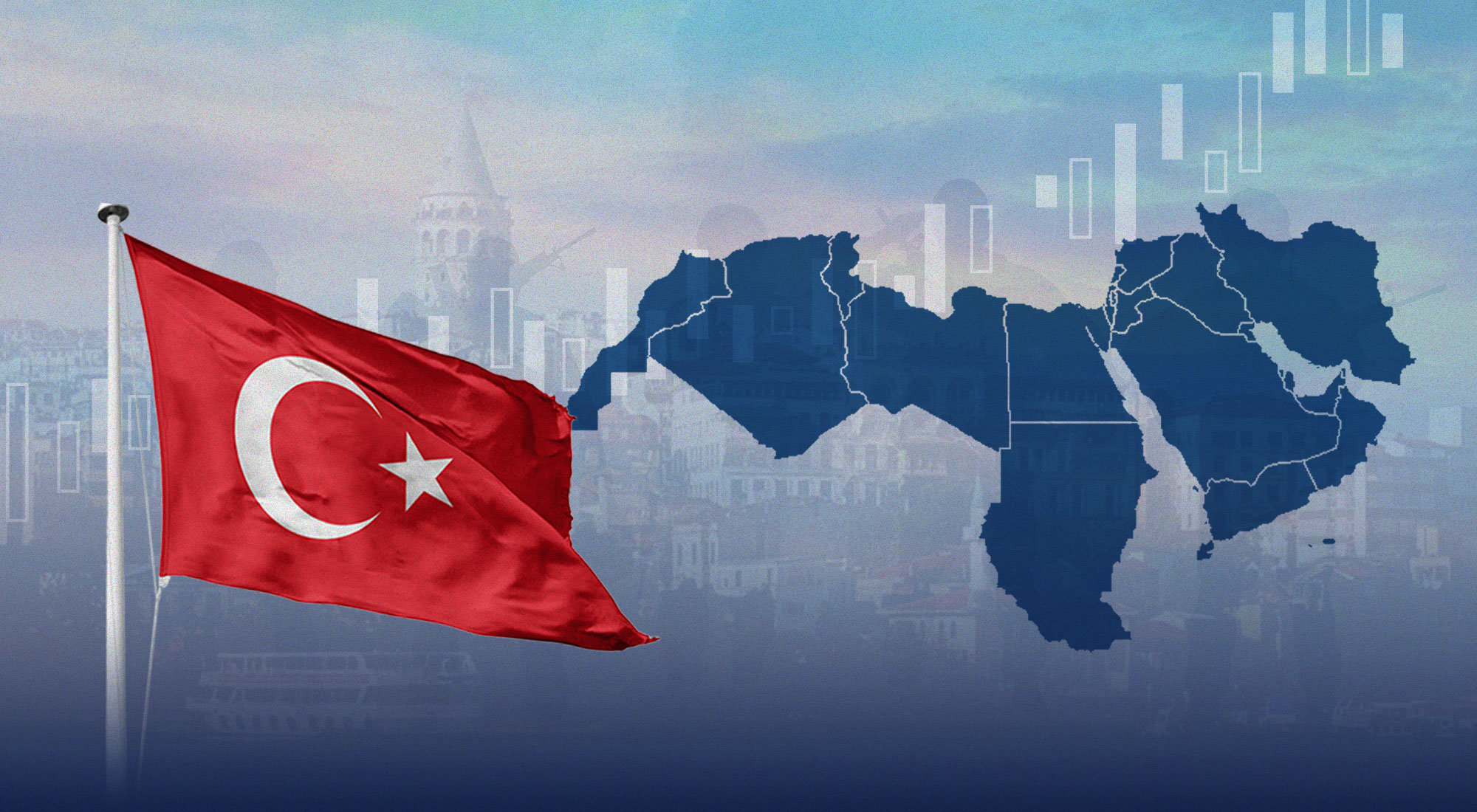The current trajectory of U.S.-South Africa relations marks a clear departure from earlier diplomatic patterns. Tensions that had been building up over recent years have intensified following the inauguration of President Donald Trump’s second term in January. A combination of executive actions, trade restrictions, and public rhetoric has accelerated the deterioration of bilateral engagement, raising broader questions concerning strategic alignment and political intent. This paper traces the evolution of U.S. policy toward South Africa across Trump’s first term, the Biden administration, and Trump’s return to office, with particular emphasis on the implications of Pretoria’s shifting foreign policy posture within an increasingly contested international order.
Trump II: How a Second Term Redefined Bilateral Relations
In the post-apartheid era, South Africa and the United States have built a solid bilateral relationship. Under the Clinton administration, ties were strengthened as Washington played a crucial role in supporting South Africa’s 1994 democratic transition. In October of the same year, U.S. President Bill Clinton welcomed newly elected President Nelson Mandela to Washington on his first state visit to the U.S., with Clinton’s continued support of South Africa’s rebuilding efforts on full display, as evidenced by his launching of the U.S.-South African Binational Commission in 1995.[1]
However, the relationship has gradually soured since then and deteriorated further more recently by President Trump’s return to office, who has taken a series of punitive measures against South Africa. On 7 February 2025, President Trump escalated punitive measures when he signed an executive order titled “Addressing Egregious Actions of the Republic of South Africa.” The order directed the State Department to prioritize refugee resettlement for “Afrikaners in South Africa who are victims of unjust racial discrimination” and instructed all U.S. agencies to cease most foreign assistance to South Africa.[2]
The executive order was issued in response to the South African Expropriation Act 13 of 2024, enacted the month before, which permits the government to reclaim and redistribute land without compensation in some instances, as well as its decision to bring a genocide case against Israel before the International Court of Justice (ICJ).[3] The South African law is meant to address systematic inequalities that have existed since colonial rule and were enshrined under apartheid rule. Although apartheid ended in the early 1990s and there was an eventual transition to democracy in 1994, the inequalities remain. Despite comprising around 80% of the population of 63 million, Black South Africans own a disproportionately small share of 4% of private lands.[4] On the contrary, White South Africans, who make up about 7% of the population, own around 70% of the country’s private farmland.[5]
U.S.-South Africa relations were further strained when, on 14 March 2025, South African ambassador Ebrahim Rasool was declared persona non grata by the U.S. Secretary of State Marco Rubio, who was explicit in his public statement posted on X, stating that Ebrahim Rasool was “no longer welcome” in the U.S. as he “is a race-baiting politician who hates America and hates Trump.”[6] South African President Cyril Ramaphosa described the decision as “regrettable” and reiterated his commitment to fostering a “mutually beneficial relationship.”[7]
The following month, on 3 April, Republican Congressman Ronny Jackson, co-led by Representative John James, introduced a bill in the House of Representatives that calls for a comprehensive assessment of the bilateral relationship between the countries, with Jackson noting that “South Africa has brazenly abandoned its relationship with the United States to align with China, Russia, Iran, and terrorist organizations, a betrayal that demands serious consequences.”[8] While one might assume that relations between Washington and Pretoria have only just begun to deteriorate, the reality is that U.S.-South Africa ties have been diminishing for some time, hitting a new low not seen since apartheid.
Trump I: The Rise of Tensions
The clash between the U.S. and the South African government occurred in 2018, during Trump’s first term in office. In May, Trump announced that South Africa would not be exempt from steel and aluminum tax exports and imposed a 25% tariff increase as part of his broader protectionist trade agenda.[9]
During the same time, right-wing South African advocacy groups—such as AfriForum, which aims to protect the rights of Afrikaners—had been lobbying Washington on issues surrounding the White minority, giving an interview to Fox News about concerns over land expropriation and claims of White South African farmers being targeted in murders. The running program by Fox News caught the attention of President Trump, who posted on Twitter in 2018 to former Secretary of State Mike Pompeo to “closely study the South Africa land farm seizures and expropriations and the large-scale killings of farmers.”[10] However, credible investigations have found no statistical evidence indicating that White farmers were being killed at rates significantly higher than other demographic groups in the country.[11]
Biden’s Passive Drift
Under the Biden administration, U.S.-South Africa relations continued to deteriorate, albeit slowly. In his first year, President Joe Biden committed to reinvigorating relations with African countries, following his predecessor’s lead through high-level engagements to deepen ties through official visits by top administration cabinet members.[12] However, restoring these relations did not appear to be a top priority for the Biden administration, as highlighted by President Biden’s sole presidential visit to Africa in the final months of his term.
While the African National Congress (ANC) government has long maintained its commitment to a non-aligned foreign policy, this stance did not sit well with the Biden administration. South Africa’s refusal to condemn Russia’s 2022 invasion of Ukraine despite global calls for democratic solidarity sparked growing frustration among U.S. policymakers. Moreover, South Africa’s engagement with China and Russia through BRICS, as well as its participation in joint military exercises with both powers, further strained bilateral trust. The relations were further strained when South Africa decided to bring a case before the ICJ accusing Israel of genocide in Gaza, which deepened the rift, reinforcing Washington’s perceptions that Pretoria is aligning itself with U.S. adversaries.[13] Domestically, the ANC has leaned on its legacy of anti-colonial resistance to justify foreign policy moves that resonate with its base, positioning itself as a champion of human rights and international law.
Trump II: Retaliation and Rupture
As mentioned earlier, while the Biden administration has allowed U.S.-South Africa relations to quietly drift into disrepair, under Trump II, the executive order concerning the “egregious actions” by the South African government marked a turning point in these ties, as the Trump administration suspended nearly all foreign aid to South Africa and redirected U.S. policy toward punitive measures rather than engagement.
The Economic Fault Lines—AGOA and Tariffs
Since its creation in 2000, the African Growth and Opportunity Act (AGOA) has long underpinned the economic and commercial relations between the U.S. and Africa. It offers eligible sub-Saharan African countries duty-free access to the U.S. market for over 1,800 products, in addition to more than 5,000 products that qualify for duty-free access under the Generalized System of Preferences program.[14] While the AGOA provides tariff-free arrangements to eligible countries, including South Africa, the Trump administration’s imposition of a new baseline tariff rate of 10% on imports from U.S. trade partners has raised economic worries, with South Africa facing a 31% tariff rate on metal and car exports to the U.S. Moreover, the Trump administration imposed a 25% tariff on all aluminum and steel product exports, with South Africa importing over $502 million worth of iron and steel to the U.S. and over $370 million in aluminum in 2024.[15] Although a 90-day pause on the new tariffs was announced shortly after the initial decision, South Africa’s inclusion in that temporary reprieve has done little to ease tensions between the two countries.[16] This uncertainty is compounded by the fact that the AGOA is set to expire in September 2025, with no visible signs of renewal or extensions under the Trump administration.[17]
Even before the Trump administration, the Biden administration utilized the AGOA as diplomatic leverage over African countries, removing Uganda, Niger, Gabon, and the Central African Republic from the list of beneficiaries in October 2023 for failing to comply with U.S. human rights and political demands.[18] The U.S. Congress considered the U.S.-South Africa Bilateral Relations Bill, which raised concerns that South Africa could be excluded from AGOA due to its membership in the BRICS trade bloc, its perceived orientation toward China and Russia, and its stance on the Israel-Palestine conflict.[19]
Reflecting on the AGOA concerns, South Africa’s Deputy Minister of Trade, Parks Tau, stated that the AGOA “in effect no longer applied” following the Trump tariff decision, urging African countries to shift their trade policies toward fast-growing markets, particularly those in the Global South.[20] With AGOA on the brink and new tariffs in place, South Africa is seeking alternative sources for its imports.
The Diplomatic Pivot—China, BRICS, and the Global South
In response to Washington’s punitive stance, China has begun coordinating efforts with South Africa and Saudi Arabia to develop a unified front against U.S. trade restrictions.[21] During a recent round of bilateral meetings, China’s Commerce Minister Wang Wentao met with South Africa’s Parks Tau and his Saudi counterpart to strengthen trade alliances and reinforce cooperation through international platforms such as BRICS and the G20.
While Washington remains preponderant in the bilateral relationship, Pretoria has steadily expanded its foreign policy options. South Africa has reduced its dependence on a single hegemon by building stronger ties with the Global South and consolidating its role within groupings like BRICS and the G20. As Tau himself stated, AGOA “in effect no longer applied” following the U.S. tariff decision, a clear signal of Pretoria’s intent to recalibrate its strategic positioning.
As South Africa prepares to host the G20 summit in Johannesburg, it presents an opportunity to either reset strategic relations or more assertively position itself as a leader within the Global South. However, U.S. diplomatic participation remains fractured. Secretary of State Marco Rubio announced that he would not attend the summit, accusing South Africa of “expropriating private property” and using the platform to promote “solidarity, equality, and sustainability,” which he dismissed as ideological posturing.[22] Despite questions about South Africa’s non-aligned attitude, the ANC has maintained its unwavering commitment to a foreign policy that serves the people of South Africa and is based on the pillars of non-alignment, multilateralism, and peaceful conflict resolution.[23] This approach reinforces South Africa’s international identity and resonates with the ANC’s domestic political base, where solidarity with anti-colonial and Global South movements remains a powerful mobilizing narrative.
In May, President Ramaphosa and his delegation traveled to Washington with the hope of resetting and revitalizing bilateral relations between the two countries after months of diplomatic tensions with the Trump administration.[24] The visit proved beneficial for South Africa, with both leaders agreeing to strengthen bilateral trade ties and increase investments for mutual benefit, particularly in fostering collaboration in technological exchanges. According to Minister in the Presidency Khumbudzo Ntshavheni, speaking at a post-Cabinet briefing, “It is safe to emphasize that the objectives that South Africa had set for the trip have been met. Cabinet looks forward to the continued participation of the U.S. administration in the G20, including the possible attendance of President Trump to the G20 Leaders’ Summit.”[25] The Cabinet further confirmed that South African and U.S. teams were working to finalize the details of a new trade agreement. However, talks of reconciliation were overshadowed by Trump’s Oval Office ambush over discredited claims that White South Africans were being persecuted for their lands, reintroducing a degree of unpredictability into an otherwise constructive diplomatic engagement.[26]
Collapse of PEPFAR Support
The abrupt suspension of U.S. aid to South Africa under the Trump II administration has placed the country’s HIV/AIDS response at risk of a significant public health crisis. Particularly, the decision to terminate funding through the President’s Emergency Plan for AIDS Relief (PEPFAR)—a program that previously supported critical HIV-related services across South Africa—threatens to undo years of progress in prevention and treatment.
On 24 January 2025, the Trump administration issued a global freeze on all U.S.-funded aid projects, including those in South Africa. Subsequently, a limited waiver was announced, ostensibly allowing specific humanitarian programs to continue. However, implementing these waivers has been fraught with confusion and inconsistency. Many organizations reported receiving cancellation letters, and the criteria for exemptions remained unclear, resulting in widespread disruptions to service delivery.[27] These disruptions are not only reversing progress made over the past two decades but are directly endangering the lives of millions of South Africans.
Previously unpublished government data indicated a decline in HIV testing and monitoring following the suspension of U.S. funding.[28] According to the National Health Laboratory Service, viral load testing among individuals aged 15 to 24 fell by 17.2% in April 2025, while maternal viral load testing declined by 21.3%.[29] These reductions have been attributed to the loss of PEPFAR-supported personnel and the closure of NGO-run clinics. While antiretroviral drugs remain funded by the South African government, the withdrawal of U.S. support for approximately 15,000 health workers has disrupted service delivery in high-prevalence districts.
According to a modeling study commissioned by South Africa’s national health department, the withdrawal of PEPFAR funding could result in between 150,000 and 295,000 additional HIV infections in South Africa by the end of 2028 unless the government can fill the funding gap.[30] While South Africa’s Department of Health has indicated that some PEPFAR-funded services will be absorbed into domestic programs, the transition is unlikely to be seamless, as without an urgent and well-funded national response, there could also be a spike in AIDS-related deaths—raising concerns not only about public health but also about the strain this will place on South Africa’s already overstretched healthcare system. However, despite President Trump’s insistence, the U.S. Embassy in Pretoria stated that life-saving humanitarian assistance would be exempt from the U.S. Agency for International Development’s freeze on programs to South Africa, confirming that they had received full permission to restart PEPFAR.[31]
The Exempted Refugees
Since returning to the White House in January, President Trump has adopted a restrictive migration agenda, including a broad suspension of U.S. refugee admissions. However, in February, the administration created an exception for White South Africans, citing alleged racial persecution. Since signing the executive order, two groups of South Africans have been resettled in the U.S. under the new program.[32] President Trump has justified the program by referencing farm attacks and the expropriation law in South Africa, claims that have been dismissed by the South African government and are not supported by official data.[33] Some contend that the exemption reflects an ideologically selective approach to refugee policy, raising concerns about fairness, legal consistency, and the politicization of humanitarian protection.[34]
Conclusion
The ongoing deterioration of U.S.-South Africa relations under the Trump II administration has created an opening for Pretoria to deepen its alignment with the Global South. Trump’s “America First” policy, aid suspension, and diplomatic disengagement have pushed South Africa to look eastward. However, while South Africa has distanced itself from Western favoritism, complete disengagement from the United States remains unlikely. On the one hand, membership in BRICS reflects Pretoria’s growing interest in diversified economic partnerships; on the other hand, replacing U.S. market access with alternative trade partners will present significant challenges. Despite its expanding global role, China is unlikely to match the scale of medical aid provided by the U.S. through programs like PEPFAR.
What lies ahead for South Africa is not isolation but rebalancing. Under Trump II, the next four years will be less about choosing sides and more about asserting agency and navigating a multipolar world with calculated pragmatism. The future of this bilateral relationship will likely impact Washington’s relationships with the rest of Africa.
[1] Bureau of African Affairs, “U.S. Relations With South Africa Bilateral Relations Fact Sheet.” U.S. Department of State, January 19, 2022, https://www.state.gov/u-s-relations-with-south-africa.
[2] The White House, “Addressing Egregious Actions of the Republic of South Africa,” February 7, 2025, https://www.whitehouse.gov/presidential-actions/2025/02/addressing-egregious-actions-of-the-republic-of-south-africa/.
[3] Ibid.
[4] Nimi Princewill, “Trump wants to protect South Africa’s White farmers. But potential changes to trade privileges would hurt them,” CNN, March 2, 2025, https://edition.cnn.com/2025/03/02/africa/south-africa-potential-trump-tariff-intl/index.html.
[5] Associated Press, “White South Africans Reject Idea They Need to Flee Country for US,” POLITICO, February 9, 2025, https://www.politico.com/news/2025/02/09/white-south-africans-us-00203271.
[6] Jennifer Hansler, “Rubio says South African ambassador ‘no longer welcome’ in US,” CNN, March 15, 2025, https://edition.cnn.com/2025/03/14/politics/rubio-south-africa-ambassador-no-longer-welcome-us/index.html.
[7] Ibid.
[8] Ali Bahati Juma, “More Trouble for South Africa as US Lawmakers File Bill to Review Bilateral Ties,” Current Affairs ZA, April 4, 2025, https://currentaffairsza.com/2025/04/04/more-trouble-for-south-africa-as-us-lawmakers-file-bill-to-review-bilateral-ties/.
[9] Tebogo Mokwena, “Explained: Donald Trump’s Soured Relations With the South African Government,” Briefly, February 13, 2025, https://briefly.co.za/world/us/209726-explained-donald-trumps-soured-relations-south-african-government/.
[10] Ibid.
[11] Anim Van Wyk, “Check the Stats, Ramaphosa – 62 People Murdered on SA Farms & Smallholdings Last Year,” Africa Check, September 27, 2018, https://africacheck.org/fact-checks/spotchecks/check-stats-ramaphosa-62-people-murdered-sa-farms-smallholdings-last-year.
[12] Christopher Isike and Samuel Oyewole, “US-Africa Relations Under Biden: A Mismatch Between Talk and Action,” The Conversation, October 31, 2024, https://theconversation.com/us-africa-relations-under-biden-a-mismatch-between-talk-and-action-242307.
[13] Christian Edwards, “South Africa Accuses Israel of Genocide and Urges Top UN Court to Halt Gaza War,” CNN, January 11, 2024, https://edition.cnn.com/2024/01/11/middleeast/south-africa-israel-genocide-icj-hague-day-one-intl/index.html.
[14] “African Growth and Opportunity Act (AGOA),” Office of the United States Trade Representative (n.d.), https://ustr.gov/issue-areas/trade-development/preference-programs/african-growth-and-opportunity-act-agoa.
[15] Tebogo Mokwena, “Donald Trump’s Tariff on Steel and Aluminium Products Could Have Severe Impact on SA Steel Sector,” Briefly, February 10, 2025, https://briefly.co.za/world/us/209517-donald-trumps-tariff-steel-manufacturing-sector-severe-impact-sa-economy/.
[16] Dan Mangan, “Trump Temporarily Drops Tariffs to 10% for Most Countries, Hits China Harder With 125%,” CNBC April 9, 2025, https://www.cnbc.com/2025/04/09/trump-announces-90-day-tariff-pause-for-at-least-some-countries.html?msockid=199ce5c4c9db6b8637aef174c8896aed.
[17] David Pilling and Rob Rose, “South Africa Minister Says US Trade Deal ‘Nullified’ by Trump Tariffs,” Financial Times, April 4, 2025, https://www.ft.com/content/01d05dc1-6a3e-4aef-a34b-351c14c236a4.
[18] Christopher Isike and Samuel Oyewole, “US-Africa Relations Under Biden: A Mismatch Between Talk and Action,” The Conversation, October 31, 2024, https://theconversation.com/us-africa-relations-under-biden-a-mismatch-between-talk-and-action-242307.
[19] Ibid.
[20] David Pilling and Rob Rose, “South Africa Minister Says US Trade Deal ‘Nullified’ by Trump Tariffs,” Financial Times, April 4, 2025, https://www.ft.com/content/01d05dc1-6a3e-4aef-a34b-351c14c236a4.
[21] Solomon Ekanem, “China Teams up With South Africa, Saudi Arabia to Push Back on U.S. Tariffs,” Business Insider Africa, April 13, 2025, https://africa.businessinsider.com/local/markets/china-teams-up-with-south-africa-saudi-arabia-to-push-back-on-us-tariffs/vj373rr.
[22] Tebogo Mokwena, “South Africans Welcome US Secretary of State’s Decision Not to Attend G20 Summit in South Africa,” Briefly, February 6, 2025, https://briefly.co.za/world/us/209228-united-states-secretary-state-announces-attend-g20-summit-south-africa/.
[23] “ANC REAFFIRMS ITS PROGRESSIVE INTERNATIONALISM IN SERVICE OF SOUTH AFRICA’S DEVELOPMENTAL AGENDA,” African National Congress, March 30, 2025, https://www.anc1912.org.za/anc-reaffirms-its-progressive-internationalism-in-service-of-south-africas-developmental-agenda/.
[24] South African Government, “President Cyril Ramaphosa Concludes United States of America Working Visit,” May 22, 2025, https://www.gov.za/news/media-statements/president-cyril-ramaphosa-concludes-united-states-america-working-visit-22.
[25] “Cabinet Welcomes Reset of SA-US Relations,” SAnews: South African Government News Agency, May 29, 2025, https://www.sanews.gov.za/south-africa/cabinet-welcomes-reset-sa-us-relations.
[26] Nick Ericsson, “Cyril Ramaphosa: Rebuked by Donald Trump but Praised in South Africa,” BBC, May 24, 2025, https://www.bbc.com/news/articles/c2e3z8v1rvlo.
[27] Mia Malan, “Trump Orders Immediate End to USAID Funding for HIV Organisations in SA,” News24, February 27, 2025, https://www.news24.com/news24/southafrica/news/trump-orders-immediate-end-to-usaid-funding-for-hiv-organisations-in-sa-20250227.
[28] Nellie Peyton, “Exclusive: HIV patient testing falls in South Africa after US aid cuts, data shows,” Reuters, May 14, 2025, https://www.reuters.com/business/healthcare-pharmaceuticals/hiv-patient-testing-falls-south-africa-after-us-aid-cuts-data-shows-2025-05-14/.
[29] Ibid.
[30] Jesse Copelyn, “US Funding Cuts Could Cause Over 150,000 Additional HIV Infections in SA by 2028 — New Study,” BusinessLIVE, April 14, 2025, https://www.businesslive.co.za/fm/fm-fox/2025-04-14-us-funding-cuts-could-cause-over-150000-additional-hiv-infections-in-sa-by-2028–new-study/.
[31] Tshepiso Mametela, “Donald Trump ‘Not yet Committed’ to Gracing G20 Summit Amid Laboured US-SA Relations,” Briefly, February 12, 2025, https://briefly.co.za/south-africa/209735-donald-trump-committed-gracing-g20-summit-laboured-sa-relations/.
[32] Michelle Gumede, “More White South Africans Arrive in the US Under a New Refugee Program,” AP, June 2, 2025, https://apnews.com/article/trump-south-africa-refugees-afrikaner-white-f5ed3aa615e0448157f8c4752d2a0cc7.
[33] Brandon Drenon, “‘It’s Not Fair’: Other Refugees in Limbo as US Welcomes White South Africans,” BBC, May 25, 2025, https://www.bbc.com/news/articles/czellw10ejdo.
[34] Ibid.









